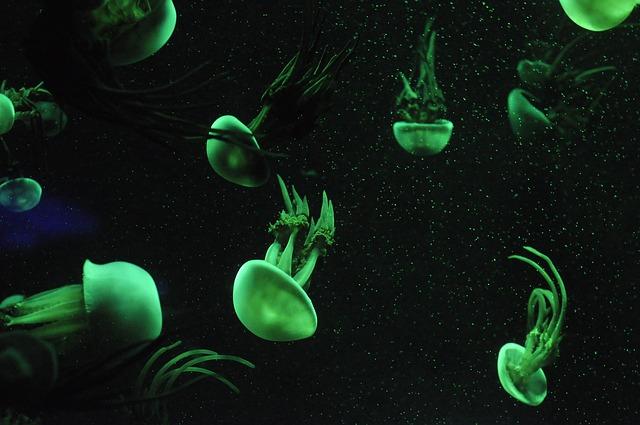In a world increasingly attuned to the whispers of environmental stewardship,the pursuit of sustainable food sources has become more critical than ever. Omega-3 fatty acids, hailed for their myriad health benefits, are no exception. Traditionally sourced from fish, these essential nutrients have made their way into countless diets adn wellness regimens. However,the environmental impact of marine harvesting raises pressing questions about the longevity of our oceans and the delicate ecosystems that reside within them. As consumers, we find ourselves at a crossroads—caught between our nutritional aspirations and the ethical considerations of our choices. In this article, we will delve into the evolving landscape of sustainable Omega-3 sourcing, exploring innovative practices aimed at reducing ecological footprints while ensuring that our oceans continue to thrive. Join us on this journey as we unravel the complex tapestry of marine sourcing, environmental implications, and the promising alternatives that pave the way for a more sustainable future.

Navigating the Oceans: Understanding Marine Sourcing for Omega-3s
Marine sourcing for omega-3 fatty acids involves a complex interplay of ecological balance and resource management. The primary sources of omega-3s are fish, algae, and krill, each presenting unique benefits and challenges that impact sustainability. A key concern is the overfishing of popular species such as sardines and mackerel, which can lead to marine biodiversity loss.To ensure sustainable harvesting practices, it’s essential to adhere to regulations and guidelines set by organizations like the Marine Stewardship Council (MSC) and the Seafood Watch Program, which identify fisheries that use responsible methods.
Choosing a sustainable omega-3 source not only supports healthier ecosystems but also enhances the nutritional quality of these supplements. As a notable exmaple, algal oil offers a vegan alternative rich in DHA and EPA while lessening the impact on fish populations. Similarly, utilizing environmentally amiable harvesting practices can significantly reduce carbon footprints and promote ocean health. Below is a summary of common omega-3 sources and their environmental considerations:
| Source | Sustainability Level | Environmental Impact |
|---|---|---|
| Fish Oil | Varies | Possible overfishing |
| Algal Oil | High | Minimal impact |
| Krill Oil | Moderate | Sensitive ecosystems |

The Ripple Effect: Assessing the Environmental Impact of Marine Omega-3s
The extraction of marine omega-3 fatty acids has profound implications for our oceans’ ecosystems. As the demand for these nutrients surges due to their well-documented health benefits, the methods used for sourcing them can lead to significant ecological repercussions. Overfishing remains a pressing concern, impacting not only the populations of fish targeted for oil extraction but also the broader marine biodiversity. This ripple effect can disrupt food chains and habitat structures, leading to long-term changes in marine environments. Consequently, it is crucial for companies and consumers alike to prioritize sustainable sourcing practices that seek to minimize environmental impact.
To better understand the relationship between marine omega-3 sourcing and environmental integrity, key factors should be considered:
- Sourcing Practices: Using responsible fishing methods to prevent overfishing and habitat destruction.
- Certification Schemes: Supporting fisheries that adhere to rigorous sustainability standards, such as those certified by the Marine Stewardship Council (MSC).
- Alternative Sources: Investigating plant-based omega-3 options, like algae, which provide similar benefits without depleting fish stocks.
| Environmental Impact | Sustainable Practices |
|---|---|
| Overfishing | Catch limits and quotas |
| Ocean Biodiversity Loss | Marine protected areas |
| Habitat Destruction | Eco-friendly gear & techniques |
| Carbon Footprint | Local sourcing & reduced transportation |

Sustainable Practices: Innovations in Omega-3 Harvesting and Production
In recent years, the seafood industry has embraced innovative approaches that minimize ecological footprints while enhancing efficiency in omega-3 extraction. Aquaculture emerges at the forefront, focusing on sustainable fish farming practices that prioritize the health of marine ecosystems. This method enables producers to cultivate fish species rich in omega-3s, such as salmon and sardines, with less reliance on wild catches. Additionally, companies are implementing closed-loop systems that recycle water and nutrients, thus reducing waste and safeguarding local environments.
Another groundbreaking advancement lies in the exploration of microalgae as an alternative source of omega-3 fatty acids.These tiny organisms, when cultivated responsibly, provide a plant-based solution that can meet increasing global demand without exerting pressure on fish populations. Benefits of this approach include:
- Reduced Overfishing: Algae cultivation decreases dependence on customary fishing practices.
- Lower Carbon Footprint: Microalgae can thrive on minimal resources, leading to reduced emissions.
- Diverse Nutritional Profiles: Algae can be engineered to enhance omega-3 content and offer additional health benefits.
As the industry continues to innovate, the combination of sustainable harvesting practices and alternative omega-3 sources promises to transform the marine sourcing landscape, ensuring a healthier planet for future generations.

empowering Choices: Recommendations for Eco-Conscious Omega-3 Consumers
For those looking to make informed decisions about their Omega-3 intake, understanding the sourcing and environmental implications is paramount. Here are some vital recommendations for eco-conscious consumers:
- Opt for Certified Products: Look for labels that indicate sustainability certifications such as the Marine Stewardship Council (MSC) or the Aquaculture Stewardship Council (ASC). These certifications ensure that the Omega-3 sources are harvested responsibly and sustainably.
- Prioritize Plant-Based Alternatives: Consider supplementing with algae-based Omega-3s. Algae cultivation has a significantly lower impact on marine ecosystems compared to traditional fish sourcing, offering a viable solution for environmentally aware consumers.
- Research Brands: Investigate companies that prioritize sustainable practices. Their transparency regarding sourcing and production can give you greater confidence in your purchase.
Educating yourself about the ecological footprints of various Omega-3 sources will empower you to make choices that benefit both your health and the planet.Also, understanding the fishing practices employed can illuminate systems that may be overexploiting marine resources. Here is a simple comparison table of Omega-3 sources:
| Source | Impact Level | Sustainability Certification |
|---|---|---|
| Fish Oil | High | MSC, ASC |
| Krill Oil | Moderate | MSC |
| Algal Oil | Low | Vegan certified |
In summary
as we navigate the complex waters of nutrition and environmental stewardship, the dialog surrounding sustainable Omega-3 sources invites us to reconsider our choices. The delicate balance between marine sourcing and ecological impact underscores the importance of informed decisions that protect both our health and the planet’s future.
As consumers, we hold the power to drive change by choosing products that prioritize sustainability, exploring alternatives like algae-derived omega-3s, and supporting companies committed to responsible fishing practices. by staying informed and advocating for sustainable practices, we can contribute to a healthier ocean ecosystem while still reaping the benefits of these essential fatty acids.
Ultimately, the path forward calls for collaboration among scientists, policymakers, and consumers alike, ensuring that our pursuit of nutritional well-being harmonizes with the preservation of our marine environments. With each small choice, we can pave the way toward a sustainable future that nourishes both our bodies and the world we inhabit.



